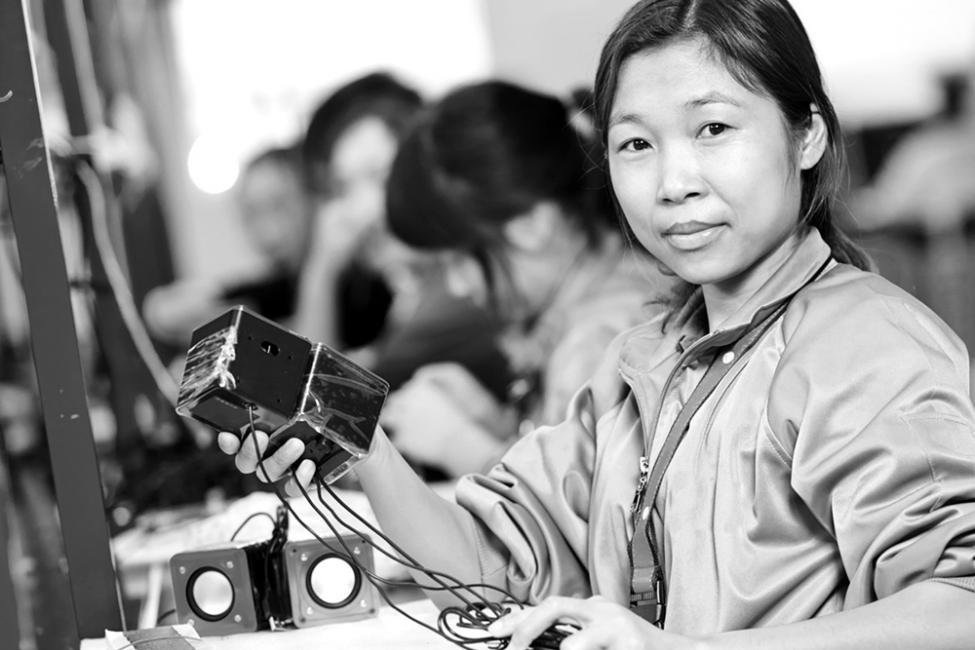-
Who we are
WHO WE AREThe International Organization for Migration (IOM) is part of the United Nations System as the leading inter-governmental organization promoting since 1951 humane and orderly migration for the benefit of all, with 175 member states and a presence in 171 countries.
-
Our Work
Our WorkAs the leading inter-governmental organization promoting since 1951 humane and orderly migration, IOM plays a key role to support the achievement of the 2030 Agenda through different areas of intervention that connect both humanitarian assistance and sustainable development.
What We Do
What We Do
Partnerships
Partnerships
Highlights
Highlights
- Where we work
-
Take Action
Take Action
Work with us
Work with us
Get involved
Get involved
- Data and Research
- 2030 Agenda
Private Sector Workers in South Korea Learn How to Counter Modern Slavery, Forced Labour
Seoul – IOM Republic of Korea (ROK) and UN Global Compact (UNGC) Network Korea organized the Consultation Workshop on Eliminating Modern Slavery and Trafficking within Companies and Supply Chains in Seoul on 13 February 2019.
The half-day workshop was attended by more than 50 participants from Korean Multinational Corporations (MNCs), related companies and government agencies. Supported by the International Development Fund, the event raised awareness of labour workers’ rights and enhanced the capacity of participants to implement fair recruitment policies in their work places.
Globally, about 25 million people are victims of forced labour with the highest number in the Asia and Pacific region. More than half of the victims, 16 million people, are working in the private sector. In 2016, migrant workers accounted for 25 per cent of the total number of victims in the region.
Objective 6 of the Global Compact for Safe, Orderly and Regular Migration (GCM), recently adopted by United Nations member states in 2018, contains the international community’s commitment on fair and ethical recruitment and safeguard conditions that ensure decent work for migrants. Yet many migrant workers are still vulnerable to labour exploitation.
“Since the early 1990s, Korean MNCs with international supply chains have been expanding their businesses in Asia, especially in China, Indonesia, Thailand and Viet Nam,” said Mihyung Park, IOM ROK Head of Office.
“Along with the growing demands for MNCs’ Corporate Social Responsibility (CSR), this workshop was designed not only to strengthen Korean actors’ understanding of the vulnerabilities of migrant workers, but also to encourage them to play an important role in promoting fair and ethical recruitment,” she added.
Opened by Jaewon Kim, Assistant Regional Director of the Ethical Trading Initiative (ETI) Office in Hong Kong, the workshop shared global data on modern slavery in supply chain and leading business practices in multiple sectors.
Two local experts from UNGC Network and the National Human Rights Commission of Korea made presentations on the international standards of CSR and recent national legislative developments in counter-modern slavery.
Maximilian Pottler, IOM Project Manager in the Viet Nam Office showcased IOM initiatives including the Corporate Responsibility in Eliminating Slavery and Trafficking (CREST) project and the International Recruitment Integrity System (IRIS) along with risk management strategies.
“It is time for Korean corporations and their partners to recognize increasing risk of unethical recruitment and to take action. I hope that the participants will gain practical take-aways including strategies on how to tackle the existing modern slavery in their supply chains,” Pottler said.
Since 2016, IOM ROK has provided a series of technical consultations for local and global corporations to promote ethical recruitment including the Global Private Sector Forum (2016).
Further information on the event can be found here.
For more information please contact IOM ROK: Mihyung Park, Tel: +82 70 4820 2781, Email: mipark@iom.int or Jumi Kim, Tel: +82 (0)70 4820 0292, Email: jukim@iom.int
